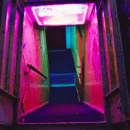This week, we spoke with Kendyll Martin, a junior at Emmanuel studying Biology. However, Kendyll is far from your average Biology student… She did research at MIT this summer, is a member of EC’s Youth in Government chapter, and founded the Chronic Illness Support and Awareness club here at Emmanuel. Read on to learn more about Biology bad*ss Kendyll Martin!
Her Campus at Emmanuel: Hi Kendyll! Thanks for doing this, how are you?
Kendyll Martin: Good! How are you?
HCE: I’m great! Let’s get started. I wanted to start by saying that I found a statistic that stated that only about 26% of people working in STEM fields are women (https://www.millionwomenmentors.org/facts). The low number of women in these fields have been linked to a lack of confidence or encouragement from teachers at a young age. Have you had teachers, professors, or experiences that have inspired you to study biology?
KM: Ever since sixth grade I really lucked out and have had the most amazing science teachers, which I think really helped. My most influential science teacher was in high school. We started this new program and we were sort of the guinea pig class. We fused biology and chemistry so we could start to learn some of the biochemistry and how they work together. Normally they’re two separate courses in high school, and that was the first time I had that teacher. He was extremely encouraging and wanted us to be interested in what we were learning. It was never “Here’s the information and it’s kind of boring but you’re going to be tested on it”. He taught that science can be fun, which I think is important because I think a lot of people think of it as boring. Even at home, we dissected owl pellets when I was little and I didn’t know how weird that was until I grew up, but it was stuff like that that made me interested in science.
HCE: What do your parents do? I’m intrigued by the family owl pellet dissection.
KM: My dad has a background in chemistry and toxicology, and now he’s a network engineer. My mom worked part time when we were growing up, doing some management and communications. Now she’s more into management because we’ve all moved out of the house. She wasn’t as much into the sciences herself, but she’s really outdoorsy. We lived on a nature reserve when I was younger before we moved, so we would have moose in our backyard. We were always outdoorsy, which I think helps going into biology; even though I don’t want to do field work, it kind of helps to not get grossed by salamanders or whatever.
HCE: I know this is a question a lot of college students dread, but what’s your dream job?
KM: Right now, my dream next step, instead of my dream job, is to get my PhD in Brain and Cognitive sciences from MIT. From there, my dream job would be doing research at a big university and then I want to go into academics to mentor people doing research and teaching.
HCE: Can you tell me about the research you did this summer at MIT?
KM: I worked with Sam, a grad student at MIT, who actually did his undergraduate here at Emmanuel, which is how I was introduced to him. In the 1106 course, we do a lab on Planaria, which are a type of flatworm. The professor for the lab used to do research with Sam, because that’s what his research is at MIT. When I actually had my internship there, I was basically helping him do his research. Planaria are this type of worm that can be cut into pieces that will grow back into worms. You have the head, and a new tail will grow back. It’s really cool! We’re looking into them for stem cell research. We’re also looking at them for genetics, because you can cut off their heads and they’ll grow back. There are certain genes that you can knock out and they will grow multiple heads. Even though they’re only flatworms, we have some genes that are similar to theirs. So… that’s what my research was about.
HCE: I’m wondering who your role models are. Could you think of an academic one and a personal one?
KM: Sam (who I did research with) is my role model. He started out studying at this tiny liberal arts school in Boston and when he was applying for grad schools he was one of the top applicants in the country. Grad schools were fighting over him. He told me once that he applied to Harvard just so he could turn them down, so he could say that [laughs]. And that’s scientist goals, you know? In a more personal sense: my best friend since sixth grade, Abby. She works really hard, and when people don’t work as hard as she does, she’s disappointed. I aspire to be like her. It’s not just her intelligence, it’s her effort and hard work.
HCE: My last question is kind of personal, but I’d love to know what your tattoo means.
KM: [laughs] So, my tattoo is a brain and it says “Try the impossible to achieve the unusual”. While I was at my internship at MIT I read this memoir called Letters to a Young Scientist. The author wrote about his best advice for scientists, and one of the quotes was something like, “You try to do impossible things through research and you end up with these amazing and interesting results that you might not have thought to look for.” That’s how I feel about neuroscience research… you might not get the results you expected, but how amazing is that?
An awesome tattoo for an awesome lady! Thank you, Kendyll, for taking time to talk to us about your scientific achievements and aspirations. We have no doubt that you will do great things.

